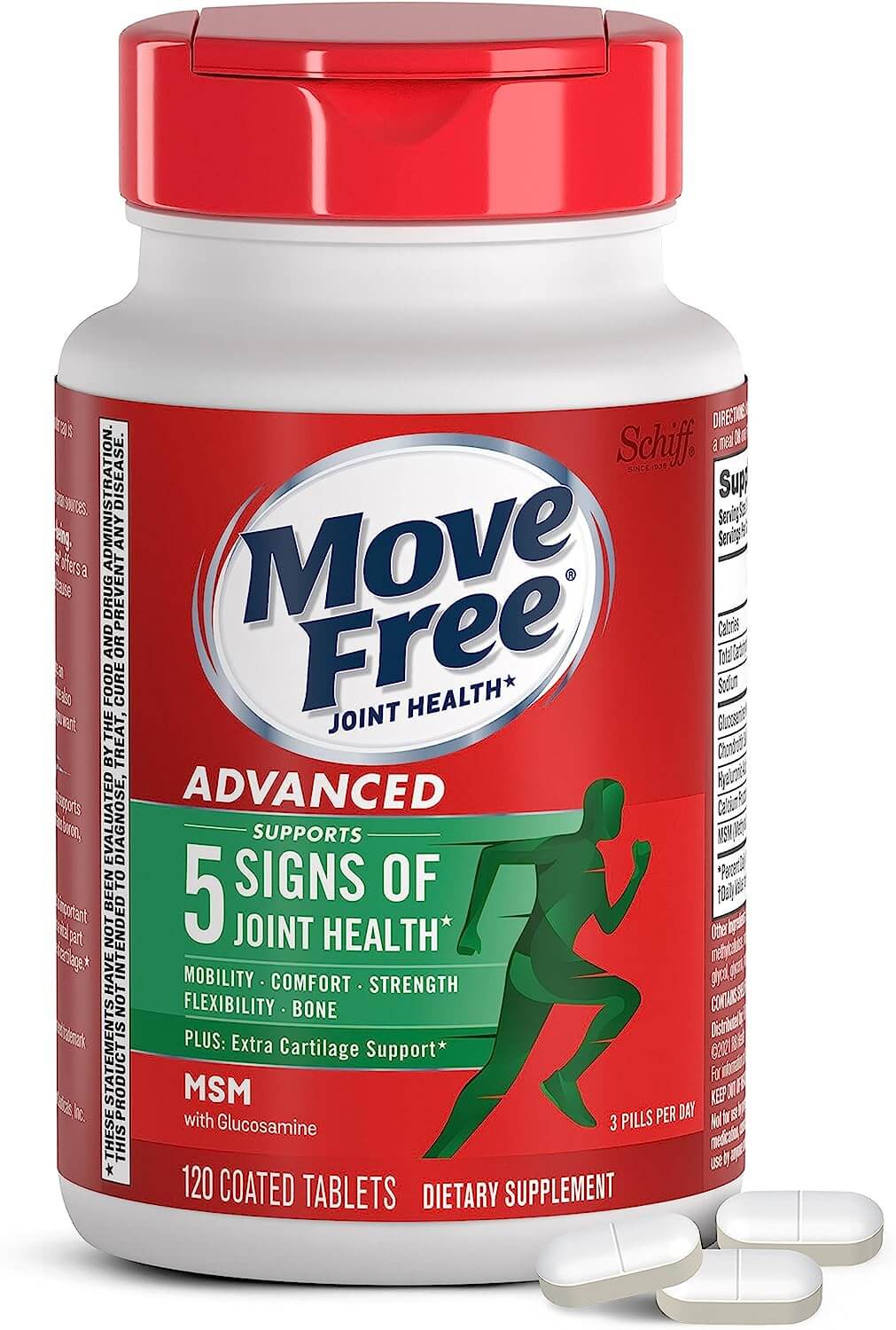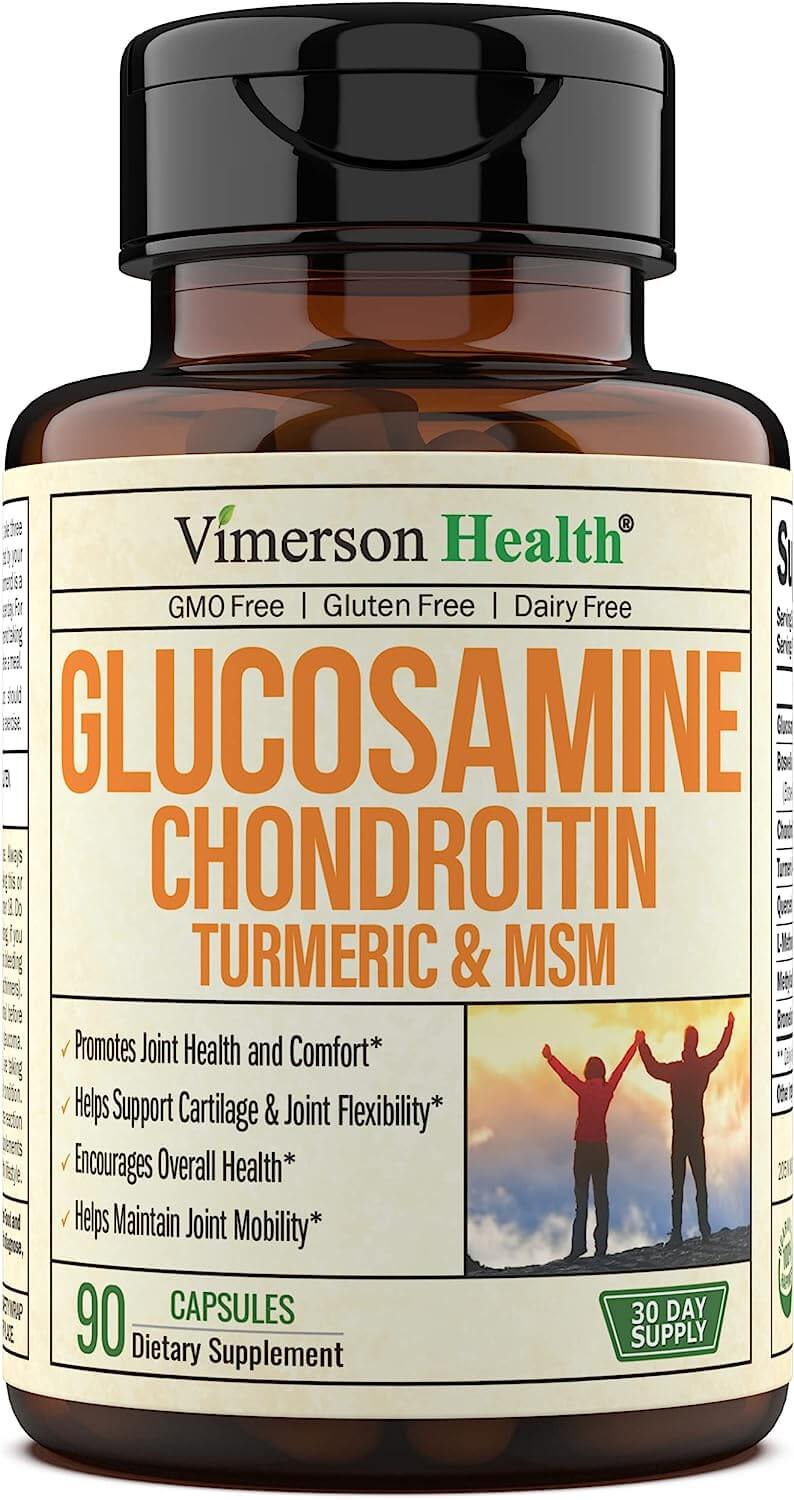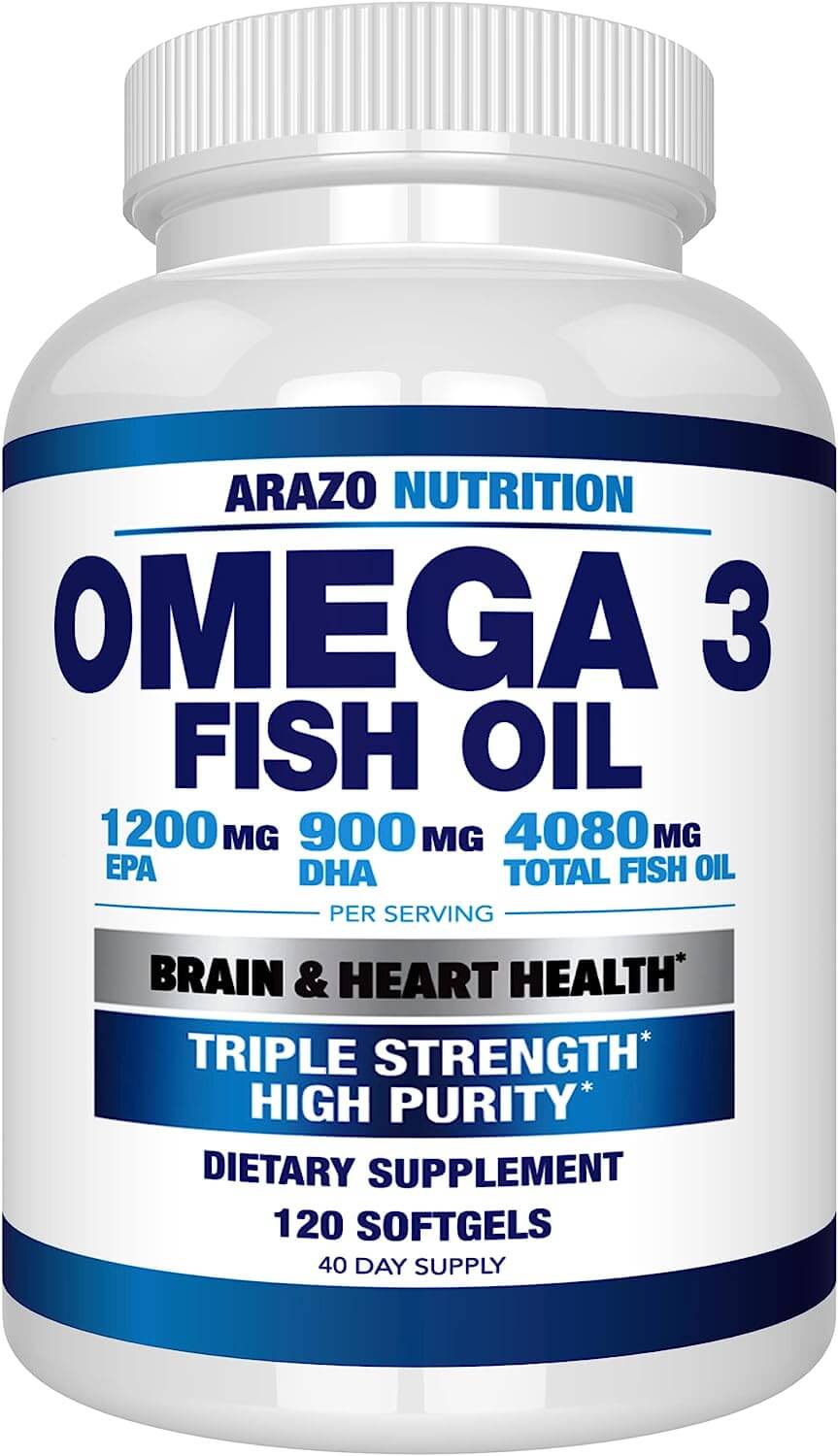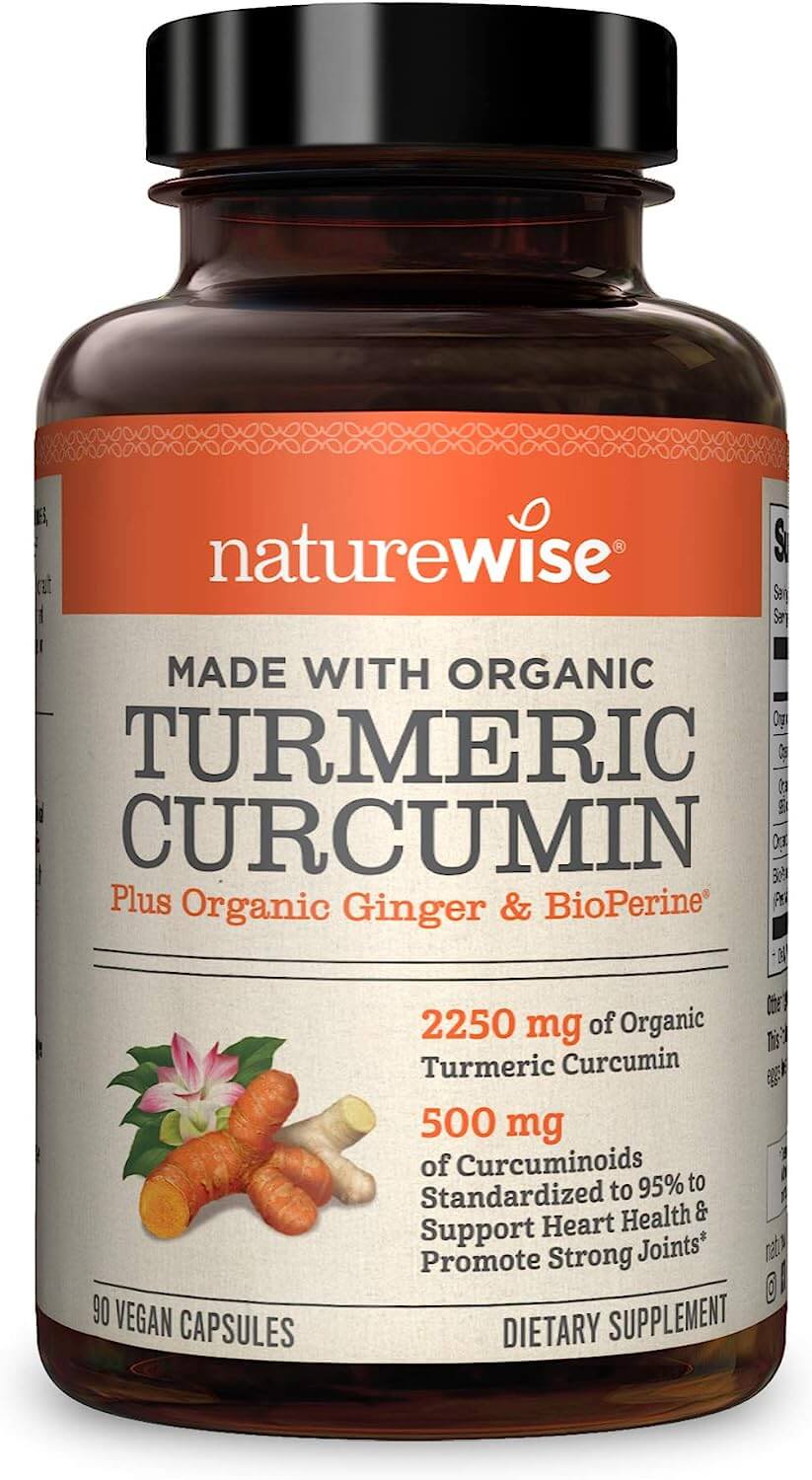Our joints take a beating over the years, especially for those of us that work manual labor jobs. Though, sitting for prolonged periods does the joints no better. Regardless of your profession, if your joints ache, you’re looking for relief, and we have it. We searched the web to find, according to health experts, the best joint supplements, and we’ve listed them here for you.
You know that exercise is of course good for you, but what about for your joints? Well, it depends on your choice of movement, because if you’re an avid tennis or racquetball player, you may be doing joints a disservice. Research by the Radiological Society of North America finds racket sports, like tennis and racquetball, are among the worst physical activities for your knees. Keep in mind that the results are worse for individuals that are overweight. The results of the study may surprise you, because racket sports cause much more degeneration than using an elliptical trainer, which caused the smallest amount of change in knees over four years. Participating in tennis or racquetball even produced a significantly higher degeneration score than people running or jogging. It may be time to put down the racket and pick up the jogging shoes.
Maybe you don’t want to give up racket sports, but what about meat? That’s right, forgoing meat in your diet, if you suffer from rheumatoid arthritis, may just help alleviate joint pain. In a study, 44 people diagnosed with rheumatoid arthritis had to rate just how severe their joint pain had been over the prior two weeks using a visual analog scale (VAS). The lowest pain rating was “no pain,” while the absolute highest rating was “pain as bad as it could possibly be.” Researchers separated the participants into two groups with distinct dieting plans lasting 16 weeks. The first group had to follow a strict vegan diet for four weeks, followed by the elimination of additional foods for the next three weeks. Then, over the next nine weeks, study authors reintroduced various eliminated foods to participants’ eating habits. Meanwhile, the second group had to stick with an “unrestricted diet” while also taking a daily placebo capsule. After each group completed their assignments, the participants switched diets for another 16 weeks. And you can probably guess what happened: joint pain decreased during the vegan phase of the diet. Also worth noting is the fact that another side effect was significant weight loss.
Ready to take some of the strain off of your hard-working joints? Below is our list of the consensus best joint supplements, according to health experts. As always, we want to hear from you. Comment below to let us know which supplement(s) keep your joints ache-free!

The List: Best Joint Supplements, According to Experts
1. Glucosamine
Glucosamine is naturally found in cartilage. And, according to Mayo Clinic, “In supplement form, glucosamine is harvested from shells of shellfish or made in a lab.” They also share that “People use glucosamine sulfate orally to treat a painful condition caused by the inflammation, breakdown and eventual loss of cartilage (osteoarthritis).”

WebMD writes: “This amino sugar is a natural part of the cartilage in your joints. Taking it as a supplement may help slow down cartilage loss, as well as ease stiffness, swelling, and pain. You can find it in capsules, tablets, liquid, or powder form.” They also note that it may be used in combination with another popular joint supplement on our list: “Your doctor may recommend you take it in combination with another supplement, chondroitin.”
“You already have glucosamine naturally occurring in your body,” adds CNET. “A glucosamine supplement is believed to help with arthritis in that it can bring down some of the pain brought on by osteoarthritis or rheumatoid arthritis. Because it’s a substance naturally found in the body, a supplement is generally considered safe. It has the potential to cause side effects like nausea and heartburn, and because it’s often made from shellfish, it should be avoided if you have an allergy. There is also a risk of interaction with blood thinners that could cause bleeding issues.”
According to Healthline, “There are two types of glucosamine found in supplements: glucosamine hydrochloride and glucosamine sulfate…One meta-analysis found that products containing glucosamine hydrochloride don’t do much to improve joint pain caused by osteoarthritis. Another study shows that glucosamine sulfate does improve these symptoms, so it may be a better option than glucosamine hydrochloride…When taken over a long period of time, glucosamine sulfate may also help to slow down the progression of osteoarthritis. Studies suggest that it slows down narrowing of the joint space, a marker of the condition getting worse, when taken for up to three years.”
2. Chondroitin
This is a chemical that is also found in human and animal cartilage. Chances are, if you’re taking a glucosamine supplement, it’s also going to contain chondroitin; the two are typically paired together in joint health products.

Medical News Today writes: “Chondroitin is another building block of cartilage that may promote healthy growth in the joints. Many companies package glucosamine and chondroitin in the same formula for joint health, as many believe the two compounds may work in tandem to support cartilage.”
“Another component of cartilage, chondroitin has also been shown to reduce joint pain and ease stiffness in a number of studies. In fact, participants in a 2015 study found that their knee pain improved by as much as 20 percent,” says Greatist. “One thing to keep in mind: A lot of people think glucosamine and chondroitin supplements go together like PB&J. But taking both at the same time won’t for sure improve your joint pain — and some research suggests it could actually make your pain worse. Talk to your doc before combining them.”
CNET also mentions: “Research into chondroitin has had largely inconclusive results, but it’s still accepted as a supplement that could be beneficial in aiding joint health. It’s generally viewed as a safe supplement, though, like many others, it can interact with blood thinners like Warfarin and put you at risk for bleeding.” Of course, check with your doctor before taking any supplements, especially if you’re currently taking medications.
3. Omega-3 Fatty Acids
The cure-all. Okay, it doesn’t cure everything, but it certainly has a long list of health benefits. Though it’s known more for heart health, it is also recommended by most experts for joint health.

UT Southwestern Medical Center writes that “a small study showed that taking omega-3 fatty acids, which occur mostly in fish oils, can significantly decrease joint swelling and tenderness in patients with rheumatoid arthritis. Most patients I see have taken these supplements before without good results.” And here’s their tip for best results: “For better absorption I recommend incorporating omega-3s into your diet through foods such as tuna, salmon, sardines, tofu, walnuts, and flaxseeds.”
“Research has shown that these supplements can reduce stiffness in people with arthritis and also combat joint pain,” adds CNET. “Studies have been conducted on how omega-3s work with arthritis, and it’s been proven that this fatty acid can ‘prevent experimental arthritis and may decrease disease activity in rheumatoid arthritis.’” And as for potential side effects: “Omega-3s are largely safe to take but can cause side effects like heartburn, nausea or diarrhea. If you currently take a blood thinner, speak to your doctor before taking an omega-3, as there is a slight risk of bleeding when you combine the two.”
And if you’re trying to combat DOMS, or delayed onset muscle soreness, after a hard workout, Verywell Fit says: “Omega-3 fats have potent anti-inflammatory properties that may help with lowering post exercise inflammation. Some research shows that EPA and DHA, types of omega-3 fatty acids, may help with exercise recovery by reducing muscle soreness and enhancing recovery. While you can get omega-3 fats from foods such as fatty fish, walnuts, and chia seeds, a supplement may come in handy if you don’t regularly eat foods high in omega-3s.”
4. Turmeric
You’ve probably heard of many people supplementing with turmeric, but you may not know much about it. The NIH writes, “Turmeric, a plant in the ginger family, is native to Southeast Asia and is grown commercially in that region, primarily in India. Its rhizome (underground stem) is used as a culinary spice and traditional medicine. Historically, turmeric was used in Ayurveda and other traditional Indian medical systems, as well as Eastern Asian medical systems such as traditional Chinese medicine. In India, it was traditionally used for disorders of the skin, upper respiratory tract, joints, and digestive system.” Today, it’s used for a variety of conditions, joint pain being one of them.

WebMD points out that “this spice gives curry its yellow color. It may give you some pain relief too. A chemical in turmeric called curcumin blocks certain proteins that can cause inflammation. Over time, it can help joints ache less and help you move better.” The chemical, curcumin, also made most lists that we reviewed.
“Turmeric is an excellent natural supplement for joint health,” adds St. Paul Rheumatology. “Most people advocate for this spice because of its active ingredient—curcumin. Curcumin is effective in reducing inflammation over a period of time.”
Medical News Today adds: “One study found that taking around 1,000 mg of curcumin per day may help reduce some symptoms, including joint pain. This effect is similar to those of over-the-counter NSAIDs, such as ibuprofen. Many supplements containing turmeric will also contain black pepper, which may help the body absorb and use the turmeric effectively.” Though they do say that “there is currently not enough strong evidence to make definite claims about curcumin’s benefits for joint pain. However, many people note the anti-inflammatory effect and take the supplement for its potential to relieve joint pain.”
5. Collagen
Collagen has become extremely popular in the supplement industry. It is found as a standalone supplement or in many protein powders now. But why is it so important? Harvard University says, “Its fiber-like structure is used to make connective tissue. Like the name implies, this type of tissue connects other tissues and is a major component of bone, skin, muscles, tendons, and cartilage.”

According to CNET, “Collagen is a protein your body makes — and as you age, you have less and less of it. It’s what keeps your skin tight and firm and what keeps your joints working smoothly. But as you get older, there’s less collagen in your joints, which is where joint supplements could help. Though there isn’t a lot of research on whether collagen can actually help your joints, doctors largely think that it won’t hurt either — if it makes you feel better while paired with low-impact exercises like swimming, then go for it. This supplement is generally safe to take, as the side effects are mild such as stomach discomfort or diarrhea.” They do warn, though, that “it’s not monitored by the Food and Drug Administation, so take care when choosing what to take.”
“One of the keys to preventing joint pain is to protect the cushy cartilage that protects your bones,” writes Prevention. “Cartilage is partially made of a protein called collagen, which ‘plays a major role in the proper maintenance and strength of joint and ligament health,’ says Jordan Mazur, M.S., R.D., the coordinator of performance nutrition for the San Fransisco 49ers.” They also note that “A 2014 review suggests that collagen can protect cartilage, relieve pain, and potentially increase the strength of your bones.”
UT Southwestern Medical Center adds: “The skin elasticity benefits of collagen, a protein made up of amino acids, have long been touted. Less research exists for its anti-inflammatory benefits: Some studies suggest it can improve joint pain, while others suggest it can decrease muscle soreness but not inflammation. Collagen is widely available as a capsule as well as a powder or liquid you can mix into food or drinks. Or you can increase your body’s natural collagen level by eating more foods containing protein and vitamin C, such as chicken, fish, eggs, and citrus fruits.”
You may also be interested in:
Sources:
- CNET
- WebMD
- Healthline
- Prevention
- Medical News Today
- St. Paul Rheumatology
- UT Southwestern Medical Center
- Greatist
- Mayo Clinic (glucosamine)
- Verwell Fit
- NIH (turmeric)
- Harvard University (collagen)
Note: This article was not paid for nor sponsored. StudyFinds is not connected to nor partnered with any of the brands mentioned and receives no compensation for its recommendations. This post may contain affiliate links.




I like a nice Merlot